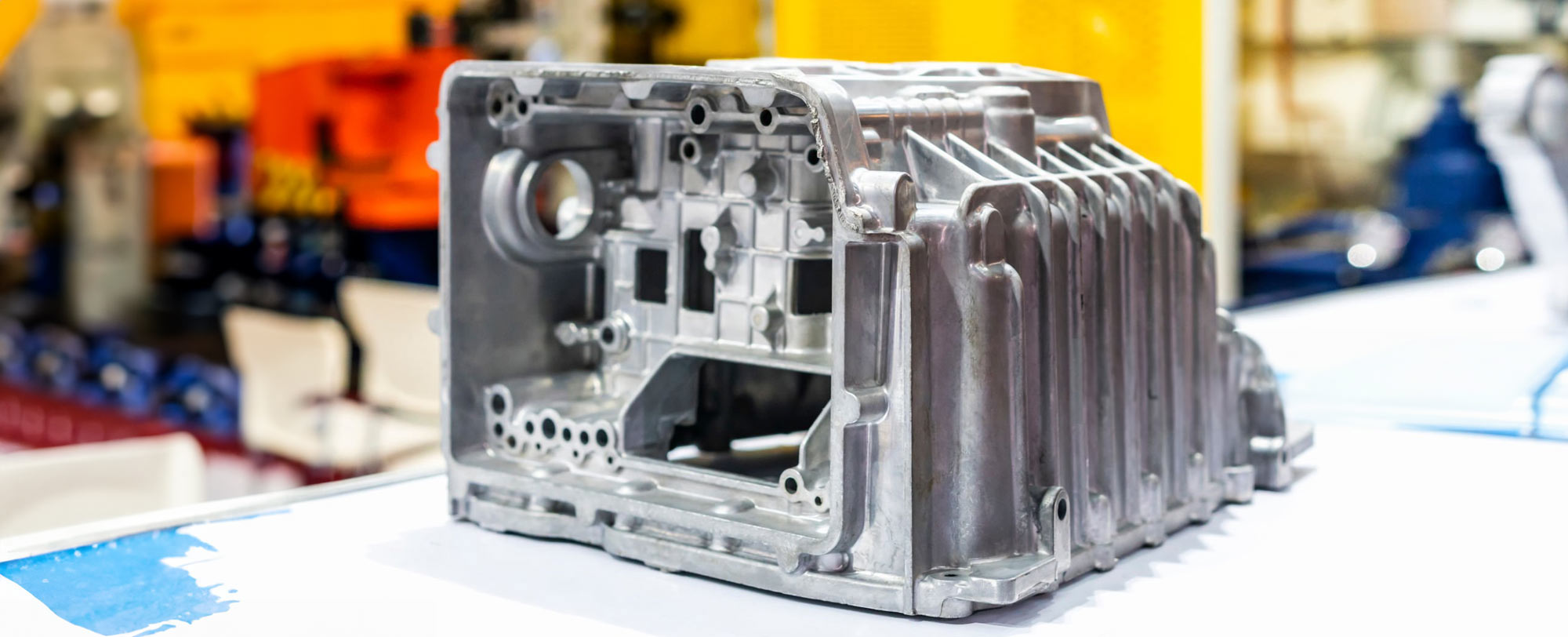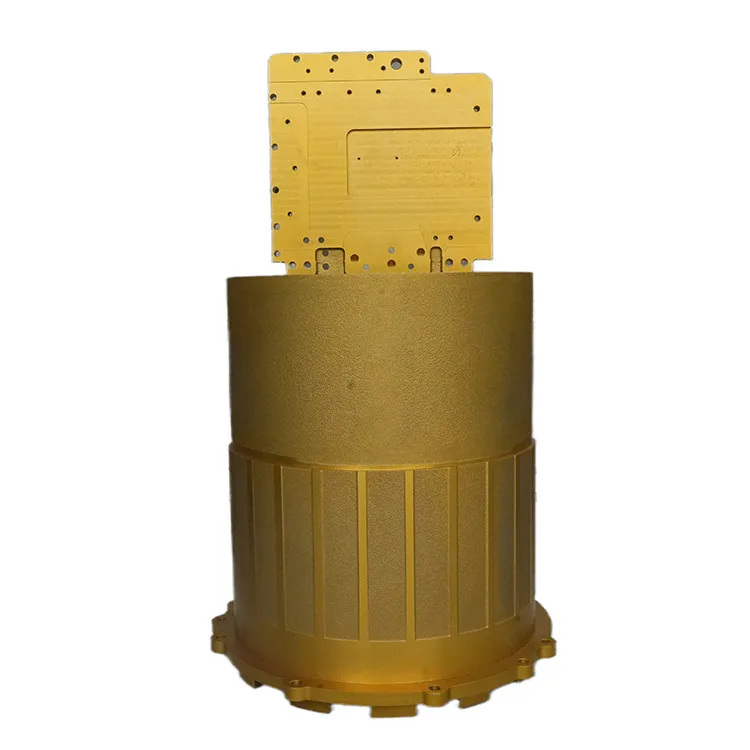The strengths of working with an expert Aluminum Casting Company
Exploring the Duty of Shop Solutions beforehand Modern Engineering Solutions
Shop solutions are vital fit modern design services - Aluminum Casting Company. They connect the gap between traditional manufacturing techniques and the demands of modern markets. With developments in automation and sustainability, shops are developing to meet the requirements of industries such as aerospace and automotive. This makeover increases concerns concerning the effects for materials, procedures, and future developments. What difficulties and opportunities lie in advance for foundry solutions in this rapidly altering landscape?
The Advancement of Foundry Services in Engineering

The integration of computer-aided layout (CAD) and simulation software program has actually transformed the layout and manufacturing processes, making it possible for shops to create intricate geometries with greater precision. The change in the direction of environment-friendly practices has actually led to the adoption of greener modern technologies and recycling efforts within foundries. As markets significantly focus on customization and quick prototyping, factory solutions have actually expanded their capacities, ensuring they remain vital factors to the engineering landscape. This development underscores the foundry's critical function in supporting developments throughout various industries, including auto, aerospace, and power.
Key Procedures and Techniques in Modern Foundries
Modern foundries utilize a selection of essential processes and methods that boost the performance and quality of metal spreading. Among these, sand casting remains prevalent because of its versatility and cost-effectiveness. Making use of advanced modern technologies, such as computer-aided design (CAD) and computer-aided manufacturing (WEB CAM), permits precise modeling and production, making sure high precision in element measurements. Furthermore, investment casting is favored for creating complicated geometries with exceptional surface area coatings.
Automation and robotics enhance manufacturing speed and consistency while lowering labor costs. Methods like additive manufacturing are increasingly incorporated to generate elaborate molds and cores, consequently reducing material waste. The application of thermal evaluation help in optimizing casting procedures by anticipating and managing solidification behavior. Jointly, these procedures and strategies exemplify how contemporary factories are adjusting to satisfy the demands of modern engineering obstacles, guaranteeing superior item top quality and functional efficiency.
The Significance of Materials Option in Shop Services
Choosing the appropriate products is important in foundry services, as it straight affects the mechanical homes, resilience, and general performance of the end product. Different materials possess distinct qualities, such as tensile toughness, corrosion resistance, and thermal stability, which must align with the designated application of the actors components. For example, metals like aluminum and steel are usually picked for their strength-to-weight ratio, while alloys can boost certain performance qualities.
Additionally, the option procedure involves considering aspects such as manufacturability, price, and availability, which can significantly affect job timelines and spending plans. In addition, developments in product science allow the growth of cutting-edge composites and specialized alloys that provide to arising engineering challenges. As a result, a complete understanding of product properties and their effects is essential for designers and factory experts to attain successful end results in their projects. This mindful selection process eventually boosts the integrity and effectiveness of the end items.
Factory Solutions in Aerospace and Automotive Applications
Foundry solutions play an essential function in the aerospace and vehicle markets, where accuracy and performance are extremely important. These industries rely heavily on the production of complex elements that have to satisfy extensive high quality standards and stand up to severe conditions. Foundries give important services such as casting, machining, and completing, ensuring elements are lightweight yet robust, essential for boosting gas efficiency and safety.
In aerospace, foundry services contribute to the production of turbine blades, engine elements, and structural parts, all of which demand high-performance materials and complex designs. Likewise, in the automotive field, foundries supply engine blocks, framework elements, and transmission cases, concentrating on durability and weight reduction.
Advanced factory strategies, including additive production and accuracy spreading, are increasingly used to meet the details requirements of these sectors. By providing tailored services, shop solutions assist drive development and keep competitive benefits in the fast-evolving aerospace and automotive landscapes.
Advancements Driven by Foundry Capabilities
Numerous technologies in design are fueled by the innovative abilities of factory services. These solutions allow the production of complex geometries and high-performance products that are crucial for contemporary applications. Additive production, commonly recognized as 3D printing, has actually seen substantial innovations through shop techniques, enabling for the fast prototyping of complex designs. In addition, the ability to cast light-weight alloys has changed sectors such as aerospace and auto, resulting in enhanced fuel efficiency and performance.
Furthermore, shops are increasingly incorporating clever modern technologies, such as automation and data analytics, to boost production effectiveness and quality control. These advancements not only reduce waste however additionally allow customization at range, satisfying the details needs of clients. By leveraging innovative factory capabilities, engineers can explore new frontiers in product style and performance, eventually driving progress across different industries and establishing a foundation for future advancements.
Future Trends in Foundry Providers and Design Solutions
The future of shop solutions is shaped by arising fads such as lasting manufacturing practices, which focus on ecological obligation. Automation and wise modern technologies are readied to improve effectiveness and precision, while enhancing customization and flexibility will fulfill the evolving needs of customers. As these trends develop, they will redefine the landscape of design remedies in the factory market.
Lasting Production Practices
As markets increasingly prioritize ecological obligation, sustainable production methods within foundry services are coming to be vital to modern engineering solutions. These practices focus on decreasing waste, reducing energy usage, and using environment-friendly products throughout the production procedure. By carrying out strategies such as reusing scrap steel and enhancing melting procedures, shops can notably decrease their carbon impact. In addition, the fostering of life cycle go evaluations allows manufacturers to examine the environmental effect of their items from inception to disposal. Teaming up with vendors committed site here to sustainability additionally improves the effectiveness of these initiatives. Eventually, welcoming lasting production not just lines up with international ecological goals but likewise fosters innovation and competitiveness in the quickly evolving design landscape.
Automation and Smart Technologies
While many sectors are accepting technological innovations, factory solutions are experiencing a substantial transformation with automation and clever innovations. The assimilation of robotics and automated systems enhances production performance, decreases human error, and increases the manufacturing procedure. Smart modern technologies, such as IoT and AI, allow real-time monitoring and predictive upkeep, which optimize functional efficiency and decrease downtime. These advancements help with data-driven decision-making, enabling factories to react quickly to market demands and boost product top quality. Furthermore, automation reduces labor prices and improves office safety by managing hazardous jobs. As foundry services continue to adopt these innovations, they are positioned to redefine design remedies, causing enhanced competitiveness and sustainability in the production industry.
Personalization and Flexibility Trends
Emerging patterns in factory services significantly stress modification and versatility to satisfy distinct client requirements. This change mirrors a more comprehensive demand for tailored design remedies that adapt to details job demands and sector criteria. Companies are investing in advanced innovations, such as additive manufacturing and electronic modeling, enabling them to generate customized elements successfully and cost-effectively. As an outcome, foundries are relocating far from one-size-fits-all approaches, using clients the capacity to customize layouts and products in real-time. Additionally, partnership in between design groups and shop solutions is ending up being a lot more incorporated, promoting development and speeding up time-to-market. This trend not just boosts item performance but likewise supports sustainability by decreasing waste with exact production procedures.
Frequently Asked Questions
What Are the Common Prices Related To Factory Services?
Normal expenses connected with factory solutions consist of product costs, labor charges, tools usage fees, and expenses prices - aluminum casting. These costs can differ widely based upon task intricacy, quantity, and certain requirements of the design solution involved
The length of time Does the Foundry Refine Usually Take?
The foundry procedure normally takes anywhere from several weeks to a few months, relying on elements such as complexity, material needs, and production quantity, which can significantly influence timelines and overall project shipment.
What Industries Advantage Most From Shop Providers?
Industries such as vehicle, aerospace, and construction benefit check out here considerably from shop services. These markets rely upon precision spreading and metal fabrication to create complicated parts, improving product performance and operational effectiveness in their corresponding applications.
What Qualifications Should Shops Have?
Shops ought to possess certifications such as ISO 9001 for quality monitoring, ISO 14001 for environmental management, and specific industry accreditations like AS9100 for aerospace or IATF 16949 for auto, making sure compliance and quality control.
How Do Foundries Guarantee Top Quality Control in Their Procedures?

Factory solutions are vital in shaping modern-day design remedies. As engineering self-controls have progressed, the role of factory services has changed greatly to fulfill advancing sector needs. As sectors progressively focus on customization and rapid prototyping, foundry solutions have increased their abilities, ensuring they remain important factors to the design landscape. As industries progressively focus on environmental obligation, lasting production methods within shop services are becoming crucial to modern engineering services. In addition, cooperation between engineering teams and foundry solutions is ending up being a lot more integrated, fostering advancement and speeding up time-to-market.